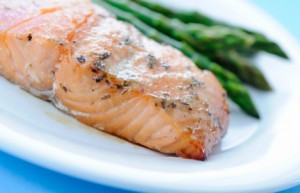Iodine deficiency during pregnancy could harm babies’ IQ
 Most expectant mothers are deficient in iodine, a mineral that is essential for cognitive development.
Most expectant mothers are deficient in iodine, a mineral that is essential for cognitive development.
A recent study has looked into the effect of iodine deficiency in pregnancy for the first time and has uncovered some shocking results. The UK study revealed that a staggering two-thirds of women had a mild to moderate iodine deficiency during pregnancy, which has been linked to significantly lower IQ and reading ability in their children (aged eight to nine).
The mineral is vital for the growth and development of the brain, and expectant mothers need 50% more to help the cognitive development of their baby. Researchers from the Universities of Surrey and Bristol looked into the records of 1,000 mothers who took part in the Children of the 90s study which has followed the growth and development of children born to mothers between 1990 and 1991. The research found that a shocking 67% of mothers had low levels of iodine when they were pregnant. After testing the children using IQ and reading tests, the results revealed that children of mothers with low iodine levels were 60% more likely to be in the bottom group.
Professor Jean Golding, the founder of the Children of the 90s study said that this effect was big enough to influence exam grades in later life:
“If iodine deficiency were rare I would not be so worried. But it is not rare. This may prevent a child reaching their full potential.”
Researchers have said that women should ensure they are getting enough iodine from their diet and to check that any pregnancy supplement they are taking contains iodine. The best sources of iodine are: milk, fish and yoghurt. It is recommended that women who are expecting eat two portions of fish every week and three portions of dairy.
Having said this – it is important that pregnant women do not overdo it, more than 600 mcgs a day could cause thyroid problems. Experts recommend avoiding kelp and seaweed supplements as they can contain excessive amounts of iodine.
If you want to learn more about nutrition during pregnancy, why not get in touch with a nutritionist? For more information, please see our Pregnancy and Preconception page.
View and comment on the original Independent article.

Find a nutritionist dealing with Women's nutrition
All nutrition professionals are verified


